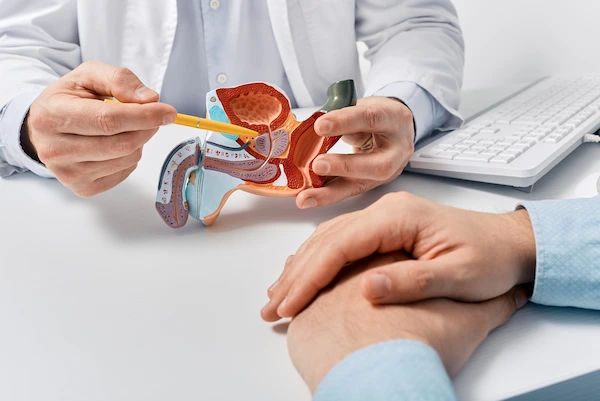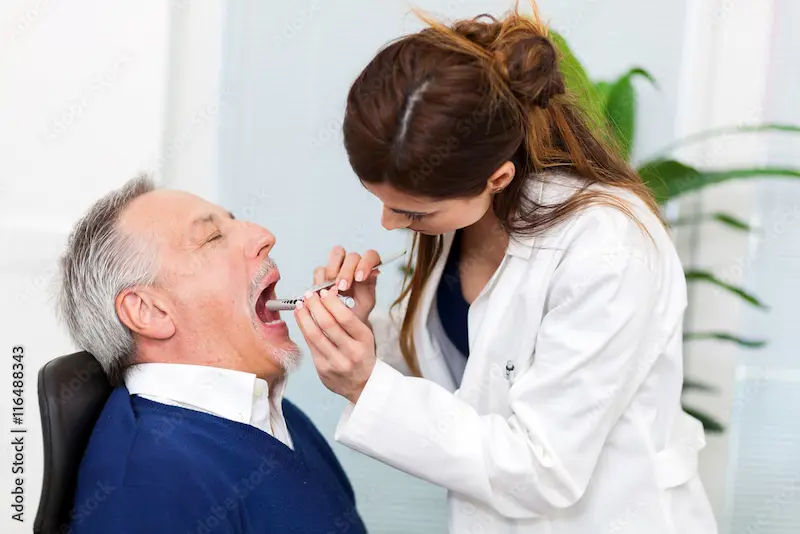- female
- 50 Years
- 20/02/2025
I'm a bit worried after my recent chest X-ray. It showed this opacity in the right lower zone, so they did a CT thorax with contrast. The results showed a well-defined, heterogeneously enhancing lobulated mass in the anterior mediastinum on the right side, around 6.6x5.3x6.5cm. It seems to be involving the prevascular space, but thankfully, there arent any changes in the surrounding lung parenchyma. They mentioned it could be either a lymph nodal mass or a thymoma. Could you help me understand what this might mean and what the possible next steps could be?
Answered by 1 Apollo Doctors
do PET SCAN
Dr. Dhankecha Suggests...
Consult a Oncologist
Answered 04/07/2025
0
0


Ask Apollo
AI powered Health Chatbot
-
Understanding the Mass:
- A lobulated mass in the anterior mediastinum could be a lymph nodal mass or a thymoma.
- The absence of changes in lung tissue is generally a positive sign.
-
Diagnostic Steps:
- A biopsy is crucial to determine the exact nature of the mass.
- Additional imaging or blood tests may be recommended.
-
Treatment Options:
- Depending on the diagnosis, treatments may include surgery, radiation, or medical therapy.
- Specialists involved could be thoracic surgeons, oncologists, and pulmonologists.
-
Monitoring and Follow-up:
- Regular monitoring is essential if immediate treatment isn't required.
- Track symptoms and maintain timely consultations with healthcare providers.
-
Emotional Support and Guidance:
- Discuss concerns with your healthcare team.
- Consider resources for patient support and counseling if needed.
Recommended next steps
Consult a Cardiothoracic and Vascular Surgeon or Consult a Medical Oncologist
Answered 10/09/2025
0
0
More Oncology Health Queries
View allI have pancreatic cancer and I'm really confused about the best treatment option for me. Some doctors recommend stenting, others suggest chemotherapy alone, and a few have mentioned Whipple surgery. I'm in Mumbai right now and would appreciate your advice on what would be the most suitable approach for my condition. I'm happy to pay the consultation fees once I hear back from you.
The best treatment for pancreatic cancer depends on several factors, including the stage of the cancer, its location, and your overall health. While surgery is the only potentially curative treatment for pancreatic cancer, it's only an option for a small percentage of patients. If surgery isn't possible, chemotherapy, radiation, and/or palliative care may be used to manage the cancer and improve quality of life
Answered by 1 Apollo Doctors
Can you help me understand the biopsy report better I had a cystectomy and cytoreduction surgery and want to know if chemotherapy can cure this condition
kindly share report
Answered by 1 Apollo Doctors
My mom was diagnosed with hepatitis B in November 2016. She had a mastectomy in December 2016 and is now going through chemo FECx3 and DOCEx3, 6 cycles total, with her 3rd cycle coming up next week. The doctors suggested starting hepatitis B treatment alongside the surgery. What kind of treatment or meds would she need, and what's the prognosis looking like?
Consultant physician M D Medicine
Answered by 1 Apollo Doctors
Disclaimer: Answers on Apollo 247 are not intended to replace your doctor advice. Always seek help of a professional doctor in case of an medical emergency or ailment.





